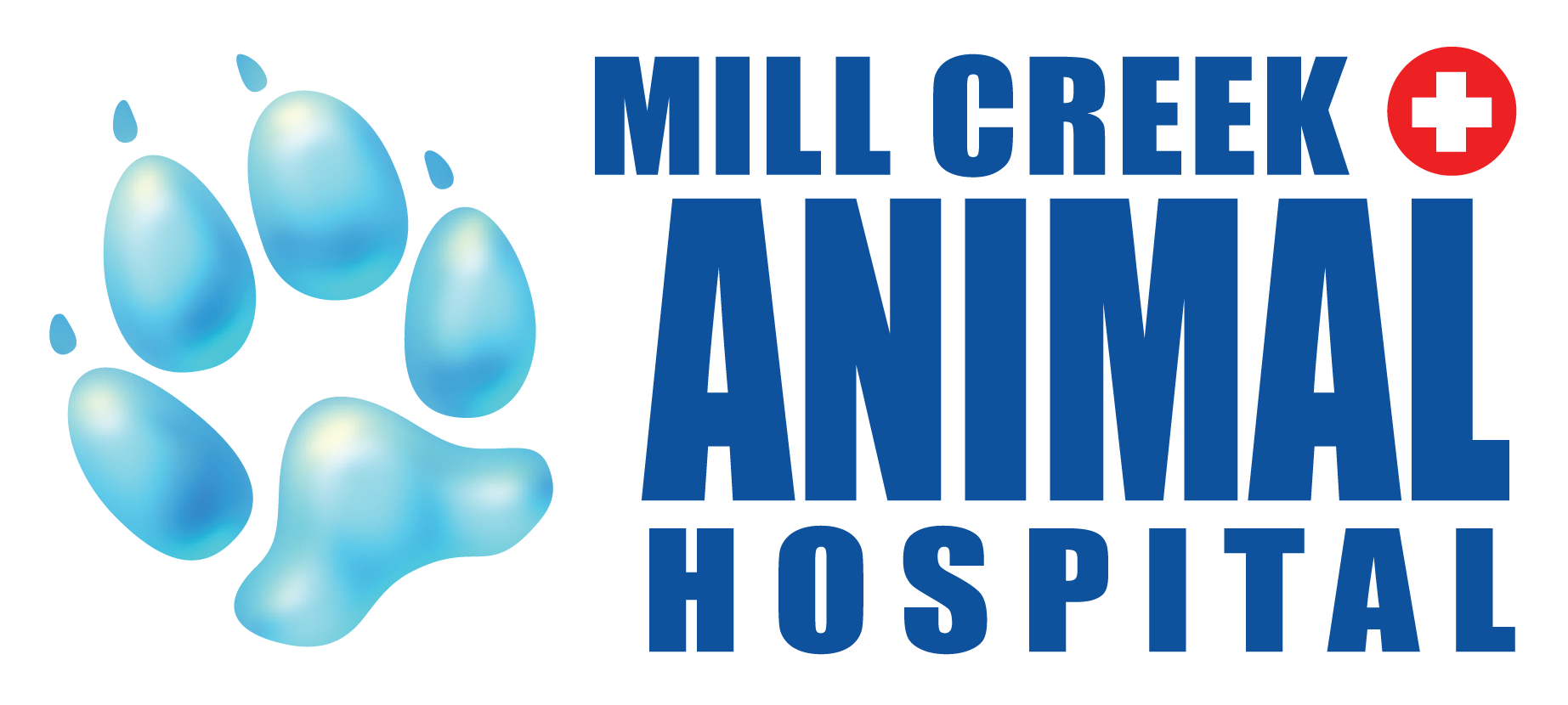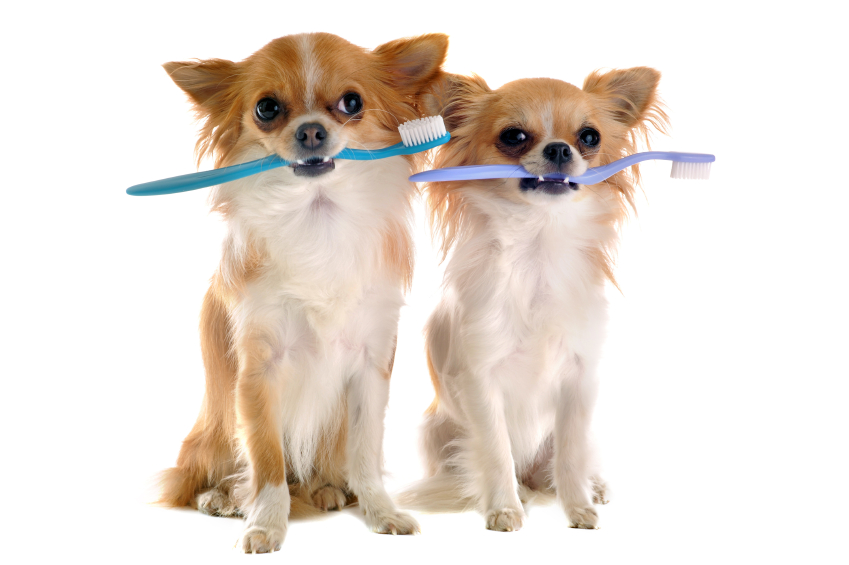Dental Health is a main focus for us for both February and March
For those in the pet health community, the start of February doesn’t bring just cupid and his arrows, but it marks the beginning of Dental Health. At Mill Creek, Dental Health is a main focus for us for both February and March. A pet’s oral health is highly important in their overall well being and because of this, we spend some focused time on education.
Most individuals do not fully understand the link between a healthy mouth and the internal health of an animal. The effects of a mouth full of tarter and infection can actually start to impact how the internal organs function. Since the teeth have direct access to the bloodstream, it is very easy for an infection or disease in the mouth to spread throughout the body. The heart, liver, kidneys and lungs can be impacted by the condition of a pet’s mouth. There are preventative steps to help maintain a healthy mouth. There are diet s available that aid in either rubbing the teeth or preventing plaque from turning to tarter, water additives are also available and help with the plaque. These are easy changes to a regular routine that can have a huge impact.
The sooner you start oral health care the better, but it is never a bad idea to be informed. You can also introduce brushing teeth to the routine to increase the benefits from a diet change and/or water additive. Along with food and water additives, routine check-ups play a huge role in overall health. A young pet should have a yearly exam which would include vaccines if needed, an overall health check, a look at the mouth. A senior pet (typically those over the age of 7) should be seen at least every 6 months for routine check-ups. This is important because our pets age at a faster rate than we do and small things can easily become bigger issues quickly. On top of the changes that you can influence at home, we highly recommend routine teeth cleaning. This is something does require a general anesthetic to allow for a full mouth exam, cleaning of the surface of the teeth (and under the gums), polishing and a fluoride treatment. In an ideal situation your pet will come in for just a regular cleaning when necessary; determined at the routine check-ups, and used to prevent the need for oral surgery later on. We often see a pet that comes in and requires multiple teeth extracted due condition of the gums and roots. Although we can’t always control these situations we want to help in limiting this experience for both you and your pet. Staying true to the theme of February, we truly do love the pets that come into our clinic and want to see the best health care service and recommendations made so that the number of painful experiences is limited in their life time.
Written by Jocelyn Husch, AHT



